Blog
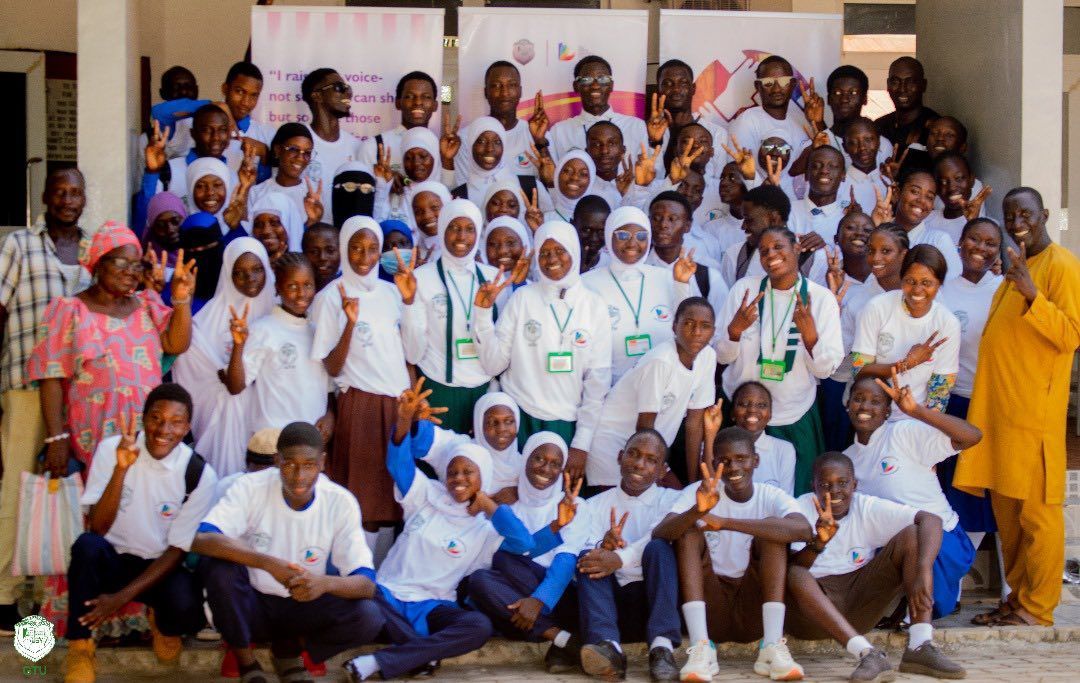
In our continued commitment to ensuring quality and inclusive education for every child, we’ve taken our advocacy to a new level by empowering the next generation to lead the conversation. In partnership with The Gambia Teachers Union, we recently convened the Foundation’s Young Ambassadors for a vibrant day of engagement dedicated to promoting the right to education for all. The event brought together passionate students from selected senior secondary schools across Region One, including St. John’s School for the Deaf, to explore what it truly means to make education inclusive, equitable, and accessible to every learner.
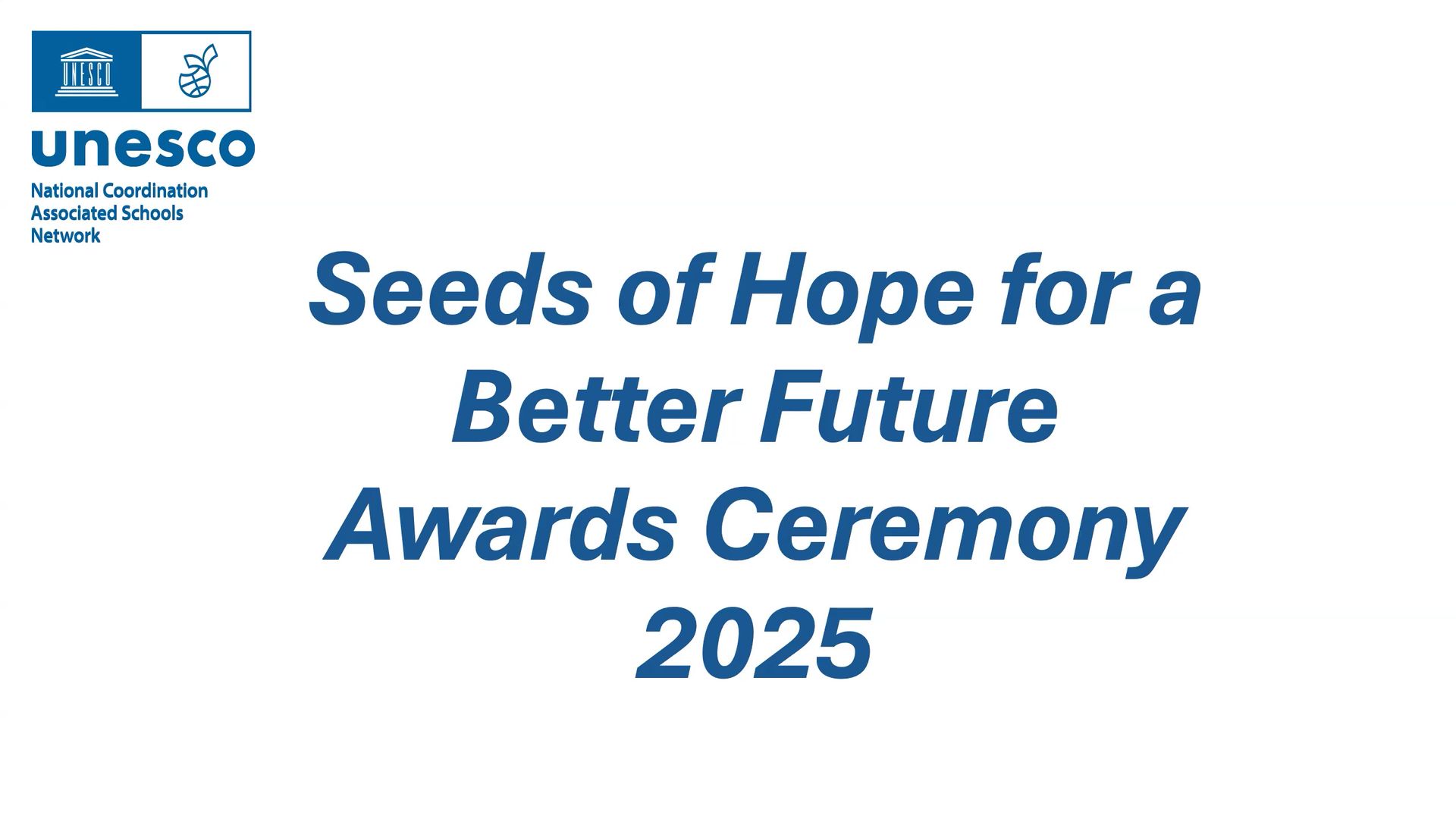
The Steve Sinnott Foundation is proud to celebrate the inspirational winners of the 2025 Seeds of Hope for a Better Future competition, a global initiative supported by UNESCO that brings together creativity, community, and a shared commitment to peace and sustainability. This unique project invited schools across the world from nursery and primary through to secondary and high school to explore the values of peace, cultural understanding, and care for the planet. In the face of climate change, young people were asked to tell their stories through art, performance, and digital creativity, highlighting how small seeds of action can grow into powerful movements for hope. The results have been extraordinary. Schools in France, the UK, Gambia, Haiti, and Kenya have been recognised for their outstanding contributions, with projects ranging from community gardens and sculptures to dance performances and illustrated stories. Each winner has shown how young voices and imagination can nurture peace and sustainability in ways that inspire us all. The full Awards Ceremony can be watched linked here: S eeds of Hope For A Better Future Awards Ceremony 2025 Highlights from the Winners Oak View Primary and Nursery School (UK) created Faces of Feeling, a collection of joyful sculptures already exhibited in a local gallery. Judges praised their work as supporting the wellbeing of others and embodying the idea of children as true “Seeds of Hope.” St Joseph’s Senior Secondary School (Gambia) painted Campaign for a Sustainable Banjul , reflecting real-world climate action in their city. The judges described it as “a most deserving and robust winner.” In France , the Jardin d'Enfants des Nations Unies (United Nations Nursery School) won hearts with Wind of Peace , where 5-6 year olds combined drawings, paintings, and tree planting to champion reforestation. Lyng Hall Secondary School, Coventry (UK) collaborated with Henley Green Primary and the UK Literacy Association to produce The Heart Shaped Hole – an innovative and metaphorical take on Seeds of Hope. Earlsdon Primary School, Coventry (UK) impressed with Primary Plot , a project that included gardening with the visually impaired, reflecting inclusivity and sustainability. A remarkable cross-collaboration between 21 schools across West Yorkshire, Essex, and Tower Hamlets (UK) resulted in Lights, Camera, Score , an ambitious combination of animation, music, and storytelling. CIMA Community School of Hope, Haiti shared Konbit - a video of dance and solidarity, inspiring villages to work together for peace and dignity. Daraja Academy, Kenya presented an ambitious and optimistic project integrating sustainability into everyday school life. Celebrating Creativity and Peace This year’s competition was judged by an impressive panel of artists, writers, and cultural leaders including Sir Antony Gormley, Edmund de Waal, Dame Liz Forgan, Hugh Quarshie, and Rathna Ramanathan. Their collective expertise highlighted the quality and depth of the entries, each of which showed how art can be a powerful tool for global understanding and change. The Seeds of Hope initiative is part of UNESCO UK’s Arts and Culture for Peace programme, first launched in 2022. It has grown from earlier collaborations such as the Coventry Young Ambassadors’ Islands of Peace Japanese Garden , opened in 2021 a living reminder that seeds planted in communities can continue to flourish. Highlights from the ceremony can be found here at this playlist Looking Ahead As Ann Beatty, UNESCO ASPnet UK National Coordinator , shared: “The quality of entries was extraordinary. We are delighted at the response to this amazing initiative in collaboration with our international partners.” And in the words of judge Jannette Cheong : “Young people around the world understand well the value of peace and tolerant relationships between cultures. Their creativity is an inspiration to all of us.” At The Steve Sinnott Foundation, we believe that education is the seed from which hope grows. The Seeds of Hope competition is a shining example of how young people through creativity, compassion, and collaboration are already shaping a more peaceful and sustainable future. You can access the full online awards presentation here: Seeds of Hope For A Better Future Awards Ceremony 2025
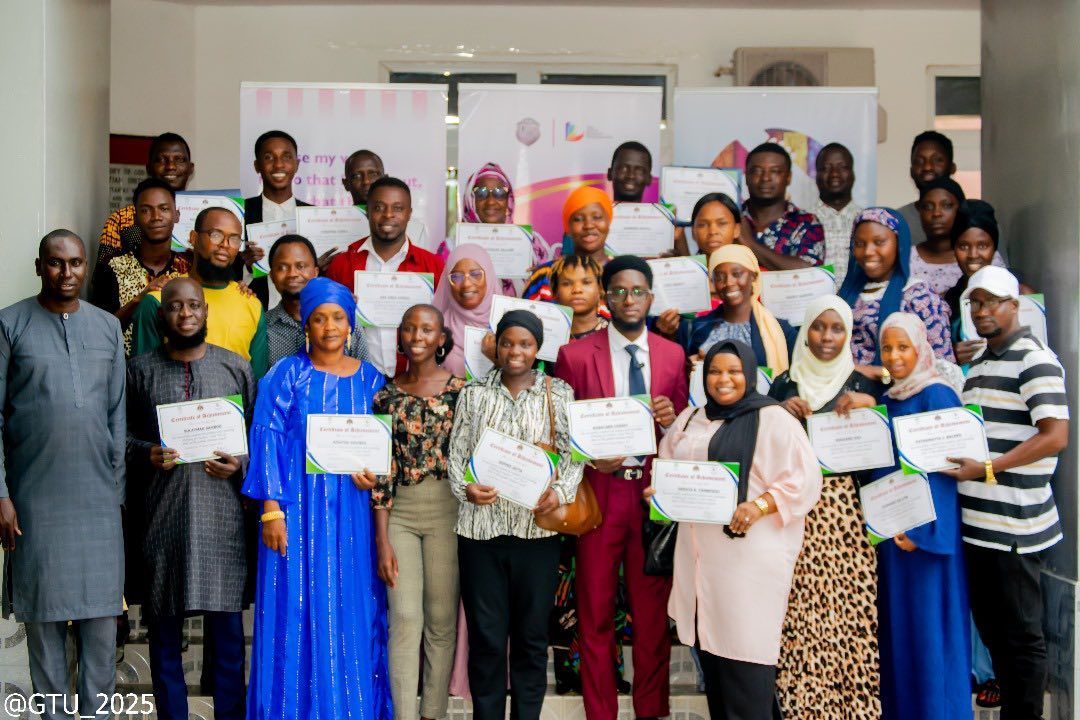
The journey to strengthen the well-being and success of learners in The Gambia continues with a renewed commitment to guidance and counselling in schools. By August 14th 2025, we have successfully trained 140 educators across 𝐑𝐞𝐠𝐢𝐨𝐧𝐬 𝟏, 𝟐, 𝟑 & 𝟒 under our Guidance & Counselling Programme. A programme designed to equip educators with the skills to support students’ academic, social, and emotional development. Region 3 Teachers Complete Level 2 Training On Wednesday, 6th August, thirty teachers from Region 3 (North Bank Region) began a three-day Level 2 Guidance and Counselling training at the Christian Council in Kanifing. This programme built on their earlier Level 1 training in Farafenni, with a focus on deepening their capacity to serve as school-based counsellors. The training concluded with a certificate presentation ceremony, recognising the teachers’ commitment and marking an important step in their professional development. These certificates symbolize more than an achievement; they represent each teacher’s readiness to provide psychosocial support, guidance, and mentorship to learners across their schools.
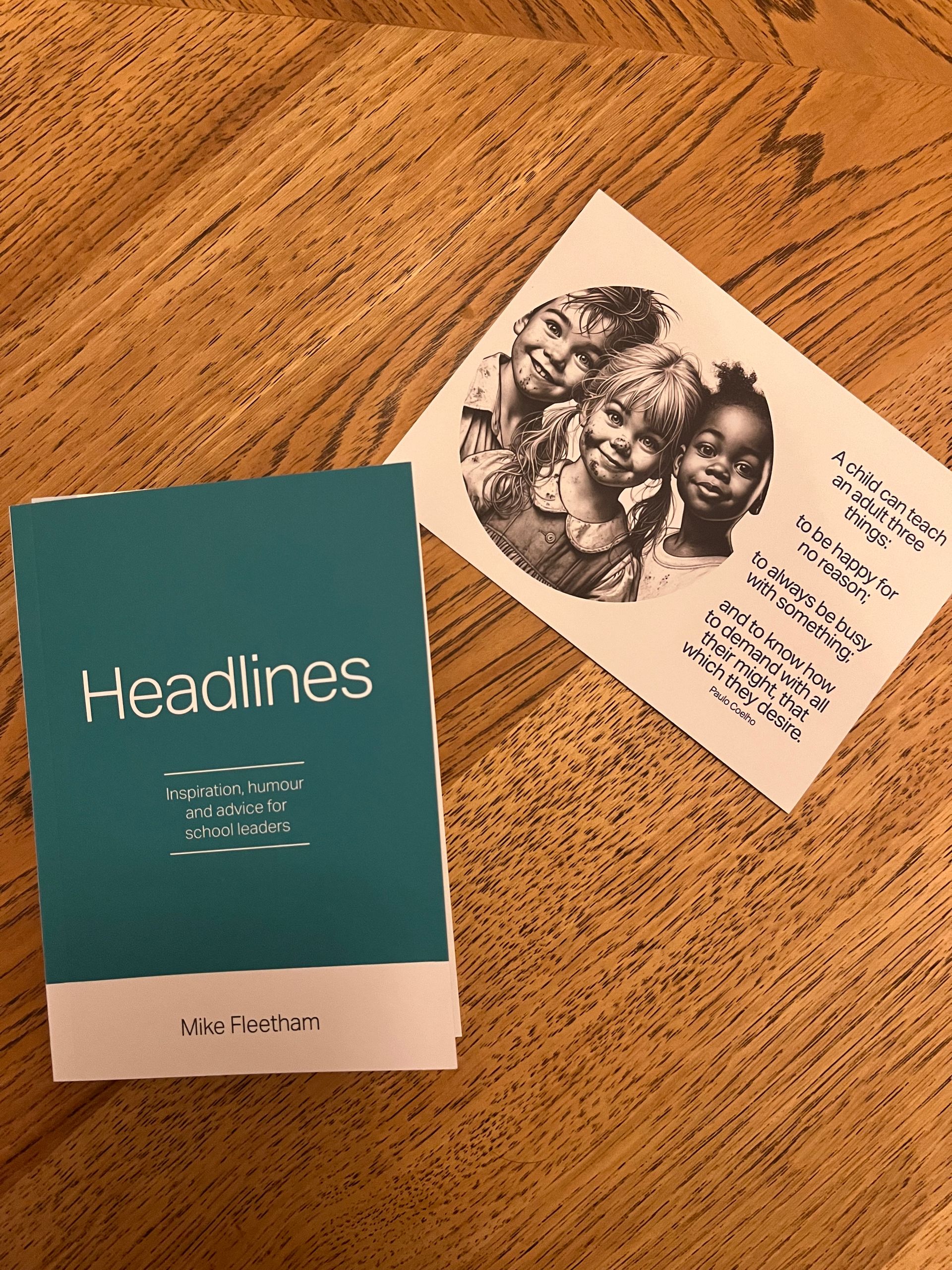
Mike Fleetham of Thinking Classroom has written a book " Headlines: Inspiration, humour and advice for school leaders ". A collection of original ideas, advice from professionals, quotes, and tips to support and inspire all leaders. Perfect for new and established leaders working in education, especially headteachers. "Being a headteacher is like looking both ways before you cross the road, and then getting hit by an aeroplane." To Enter the Competition To win a copy of Headlines please share your inspiring education or life lesson in no more than 600 words. The winning article will also be published in our next edition of Engage. Send your words of inspiration to admin@stevesinnottfoundation.org.uk 📅 Deadline: 5th September 2025 Stuck on Ideas? Here are some questions and prompts to get you started! What’s the one lesson school didn’t teach you, but life did? Think of a moment that changed your path, what happened? What piece of advice has helped you grow the most? When did a challenge turn into an opportunity for you? What story from your life would inspire someone on the other side of the world? What’s the life lesson that unlocked your next chapter? Your words could uplift, empower and be seen by many. Let your story inspire the world! 🌍💡 Good luck and we cant wait to read all the entries!
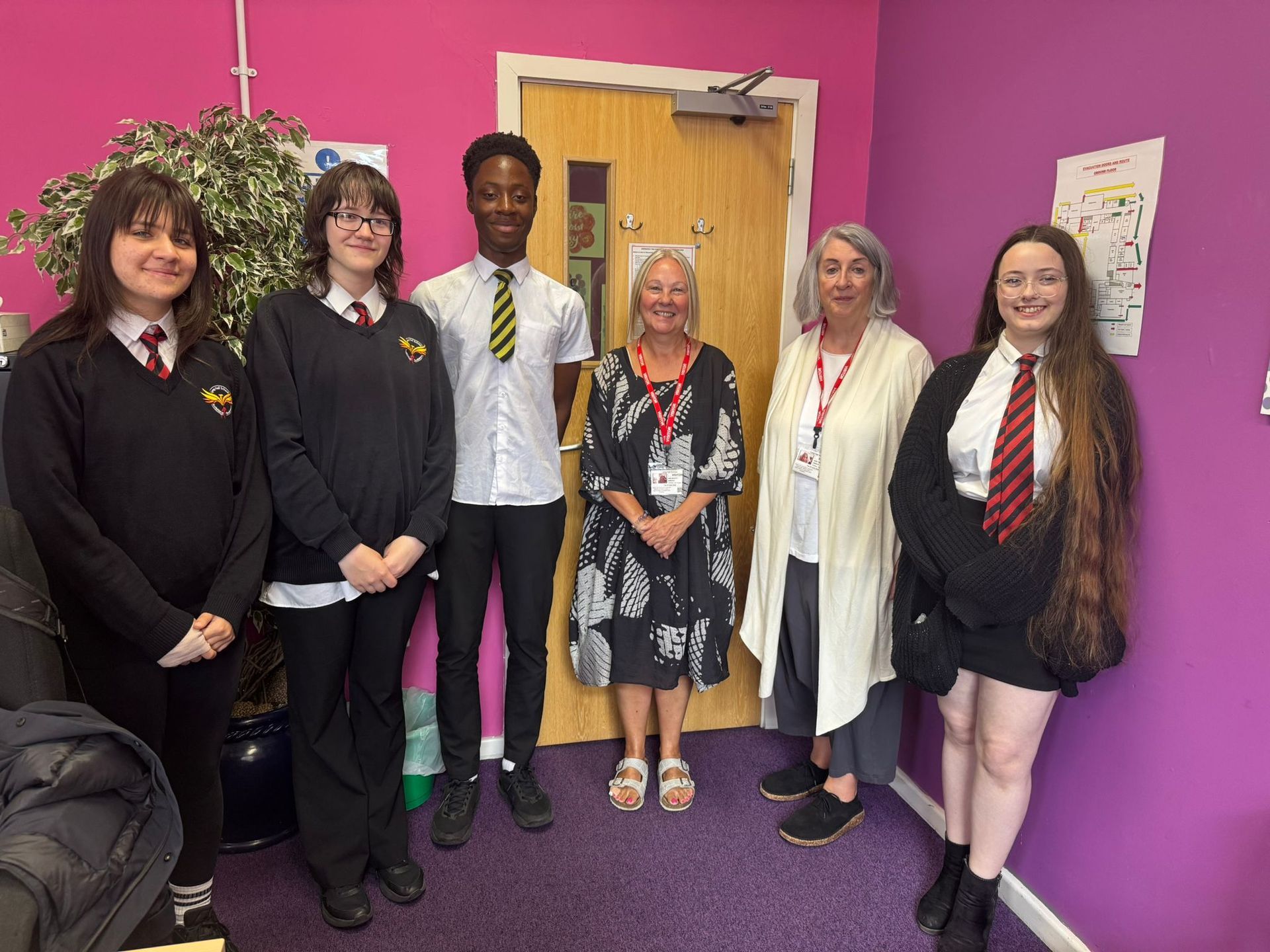
This week our CEO Ann and Jude (SSF Ambassador) visited schools in Coventry and heard about the wonderful work that students are doing to foster peace and community connection, as part of Coventry Arts Week. We visited Lyng Hall school in the morning and met with Ms Hagan and four of the schools UNESCO ASPnet ambassadors. They told us all about their recent project. The students took their art and poetry to the 80th Anniversary symposium in Ypres and Dunkirk. They shared with us some of the poetry they had written together with the students on the field trip and some of their own poems too. They also shared their future plans for working with their local primary school on peace and community. We also had the privilege of joining Ms Hagans class where they were looking at Caliban’s tale. Here is one of the students work
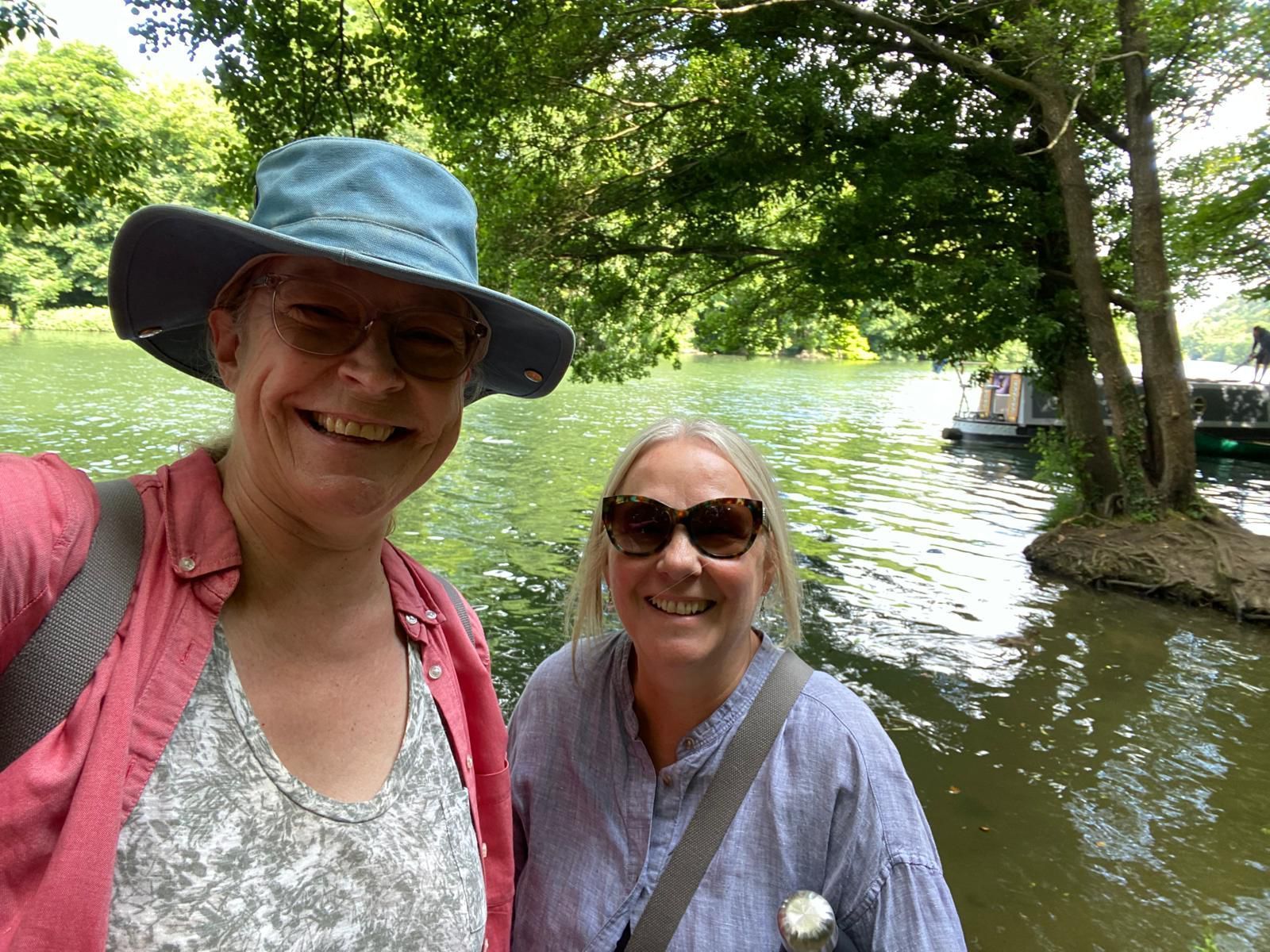
For my birthday this year I had the honour to walk 60 miles (yes it was a big 0 birthday) over 3 days to support the essential work of the Steve Sinnott Foundation of which I am CEO. Education in its many forms is essential for all of us to thrive and make the most of life's opportunities. The Foundation works to ensure that as many children and adults as possible across the globe can access the human right of education. The plan was to walk with friends and supporters who I hoped would keep me smiling along the way and it felt like a good way to make use of the Foundation’s “Get Moving” campaign. Here's how my Get Moving Fundraiser went on the first day. The 13th June I started my walk in London by walking from Barnet to west Hampstead and visiting my sister at her shop at Tree of Life where I got served a nice iced coffee to keep me going.

Defining Success in Education: Bridging Gaps for a Better Future Education is often seen as the gateway to personal and societal advancement through personal betterment. But defining success in education requires a deeper understanding than just academic achievement, it isn’t just about qualifications or certificates. Rather educational success is about ensuring access to learning that is inclusive, equitable and quality-driven. It’s about equipping students with critical thinking skills and the space to be creative. A quality education fosters holistic approaches, promoting emotional, social and intellectual growth. On a societal level, educational success is about ensuring we value and appreciate a society wide distribution of knowledge and skills; that diversity of thought can be just as important as orthodoxy. Ensuring Access to Education that Meets Individual Needs Traditional western forms of education based within on e-size-fits all models are inadequate in a world where learners have diverse backgrounds, abilities and needs. A shift is needed away from the top-down deficit model approaches which assume teaching and learning is transactional or akin to filling empty vessels, or as Paulo Freire described it, the Banking Model of teaching. Success in education will come from programmes that respect differences between individuals and across communities, using, for example, adaptive learning approaches. Additionally, integrating support for learners with neurodivergent needs or disabilities, as well as promoting (and indeed funding) digital literacy, can ensure that education is individual but also focused on the emancipatory effects of education. Gender and Racial Equity: The Pillars of Inclusive Education Gender and racial equity are crucial components of a successful education system and a founding component of Sustainable Development Goal 4. Although there has been significant progress here, disparities globally still persist. Barriers such as gender-based violence, early marriage and inadequate school infrastructure pose challenges for the international community. Similarly, racial inequality in education can manifest in various ways, from lower access to quality schooling to biased curricula that don't reflect diverse cultures or histories. To address these disparities, education systems should continue to develop policies that promote gender-sensitive curricula and address the specific needs of marginalised groups. Investing in female education, particularly in underserved areas such as sexual health, has been shown to create a ripple effect that benefits entire communities. Similarly, anti-racist educational frameworks can help to make sure that all students, regardless of their race or gender, receive the same opportunities to thrive. Creating a Better Future: What Needs to Be Done? Most importantly, we need to keep talking about SDG 4 — providing inclusive and equitable education and promoting lifelong learning opportunities for all. The more SDG4 is part of the global conversation the more likely it will become part of the taken for granted expectations of all countries and communities. The more academics like me discuss it in our lectures and have it in assignments, likely the more we are to normalise high quality, free primary and secondary education with our future global leaders. But more than this SDG4 should be at the heart of grass roots conversations, in every classroom, playground, and café. The more we talk about it the more a part of our global culture equitable access to education will become. Ultimately, success in education will not be defined by what certificates students attain, but by how well we equip individuals and communities to navigate and shape the world. Education should empower individuals, communities and nations to achieve their full potential, breaking down barriers that have traditionally limited access and opportunity. By striving for inclusivity, equity and quality, we can build a future where education truly is for everyone. BIOGRAPHY Dr Matthew Round is an academic and educator, who has worked with children from 3 years old to PhD students. Having been a science teacher, pastoral leader, and senior leader in schools in the UK, he now works in Higher Education and his current research focused on the emancipatory philosophies of Pierre Bourdieu and sex and sexuality education.
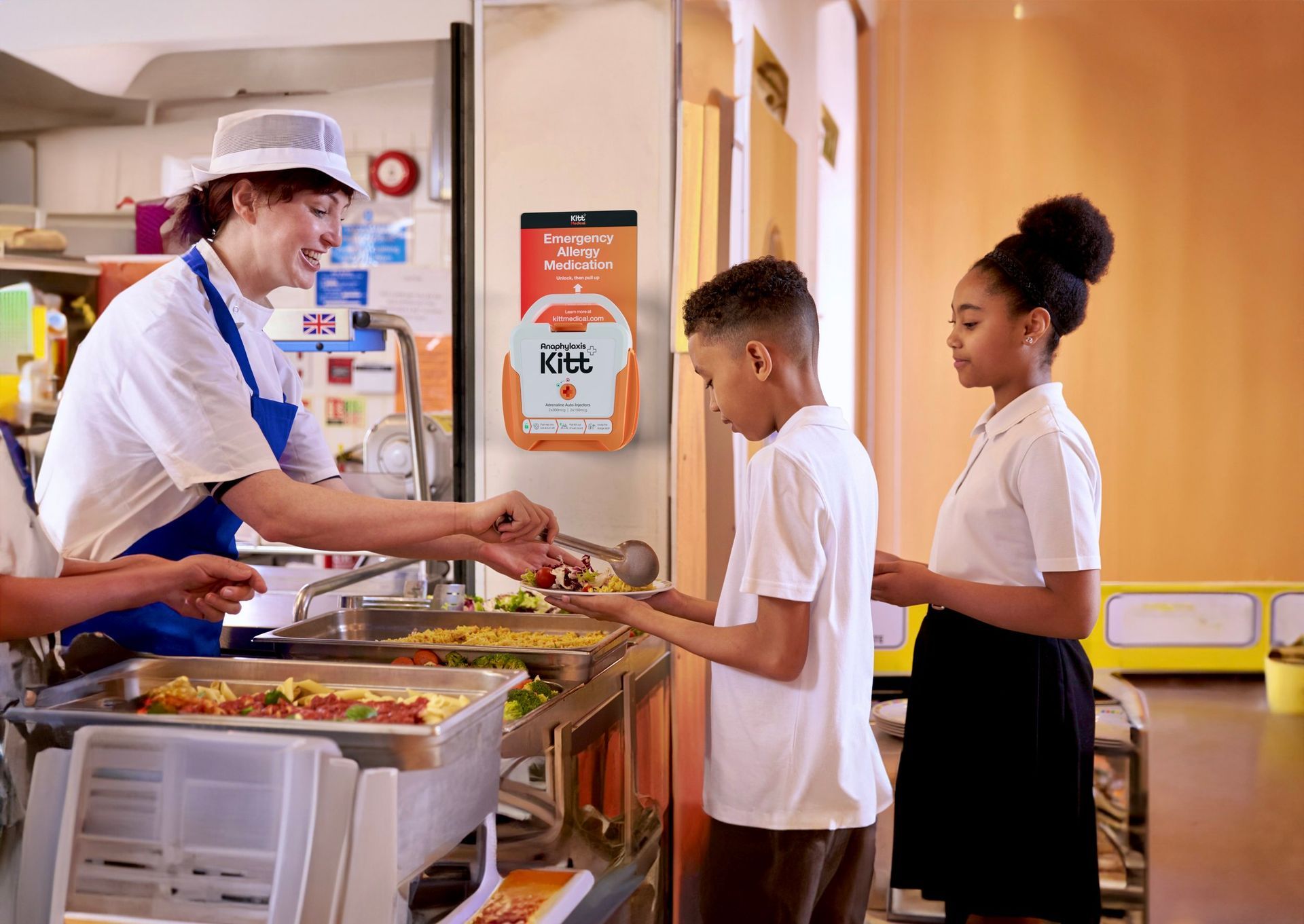
Every child deserves to feel safe and included at school but, sadly, that’s not always the case for children with food allergies. There are now around two children in every classroom with a diagnosed food allergy in the UK, and 20% of food allergic reactions occur in schools. Yet new research by the NASUWT teachers’ union, in collaboration with The Natasha Allergy Research Foundation, has exposed the barriers faced by too many of children with food allergies, which can leave them feeling excluded and isolated. The survey of almost 1,900 teachers revealed that 67% have had no allergy awareness training. One in five teachers has never been taught how to administer an adrenaline auto-injector which could save a life in a food allergy emergency, and almost two thirds (60%) don’t know or are unsure of their school even has an allergy policy. Despite a huge rise in allergies in the UK, there is no specific mandated guidance on how children with food allergies should be supported or how and when staff and team leaders should be trained. There is no funding for this either. That’s why Natasha’s Foundation, the UK’s food allergy charity, has created Allergy School. The £1 million, national programme for teachers offers nurseries, primary schools and out-of-school clubs and groups a suite of free resources, including films, engaging lesson plans and assembly packs and a self-assessment to see how allergy friendly they currently are. All are mapped into the National Curriculum to make them easy to use for all age groups. The resources also introduce Arlo, the friendly, food-allergic armadillo – a puppet which helps to educate children about food allergies in a positive and engaging way. The free resources, for children aged 3 to 11, are available at www.allergyschool.co.uk Allergy School has been developed in partnership with The King’s Foundation, St John Ambulance, the children’s charity Coram Life Education and Tesco Stronger Starts. It has received messages of support from His Majesty, The King and the Government, as well as schools, teachers and parents. His Majesty, King Charles said: “Improving understanding of this issue is so important for keeping children with food allergies safe and ensuring they are able to participate fully in activities at school or in our wider communities.” The aim of Allergy School is to transform understanding of food allergies in schools so that children with food allergies feel empowered, included and protected. I know from personal experience that it can be really hard to keep a child with food allergies safe in school. My daughter Natasha was diagnosed with food allergies as a young child and finding a nursery where she would be safe was extremely difficult. When she started school aged 5, it was only when she had a severe allergic reaction to milk on a school trip to the zoo that staff finally took her food allergies seriously. Natasha died when she was just 15 from a food allergy to sesame. She ate a baguette sandwich that didn’t list sesame seeds on the food label, but they had been baked into the dough of the bread, invisible to the eye. Had the baguette been labelled properly, Natasha would not have eaten it, and she would be alive today. Natasha’s death put us on a mission to campaign for change. Government, schools, teachers, parents and pupils need to come together to support children with food allergies in this country. Our new Allergy School programme will transform levels of awareness and understanding of food allergies in a positive and engaging way for all children. BIOGRAPHY Tanya Ednan-Laperouse OBE, founded The Natasha Allergy Research Foundation, the UK’s food allergy charity, with her husband Nadim after their daughter Natasha died aged 15 from an allergic reaction to food in 2016. In 2021, Natasha’s Law came into force which improved food labelling. The charity funds medical research and campaigns for a safer world for people with food allergies. Tanya has been awarded an OBE in recognition of her services to people with allergic disease.
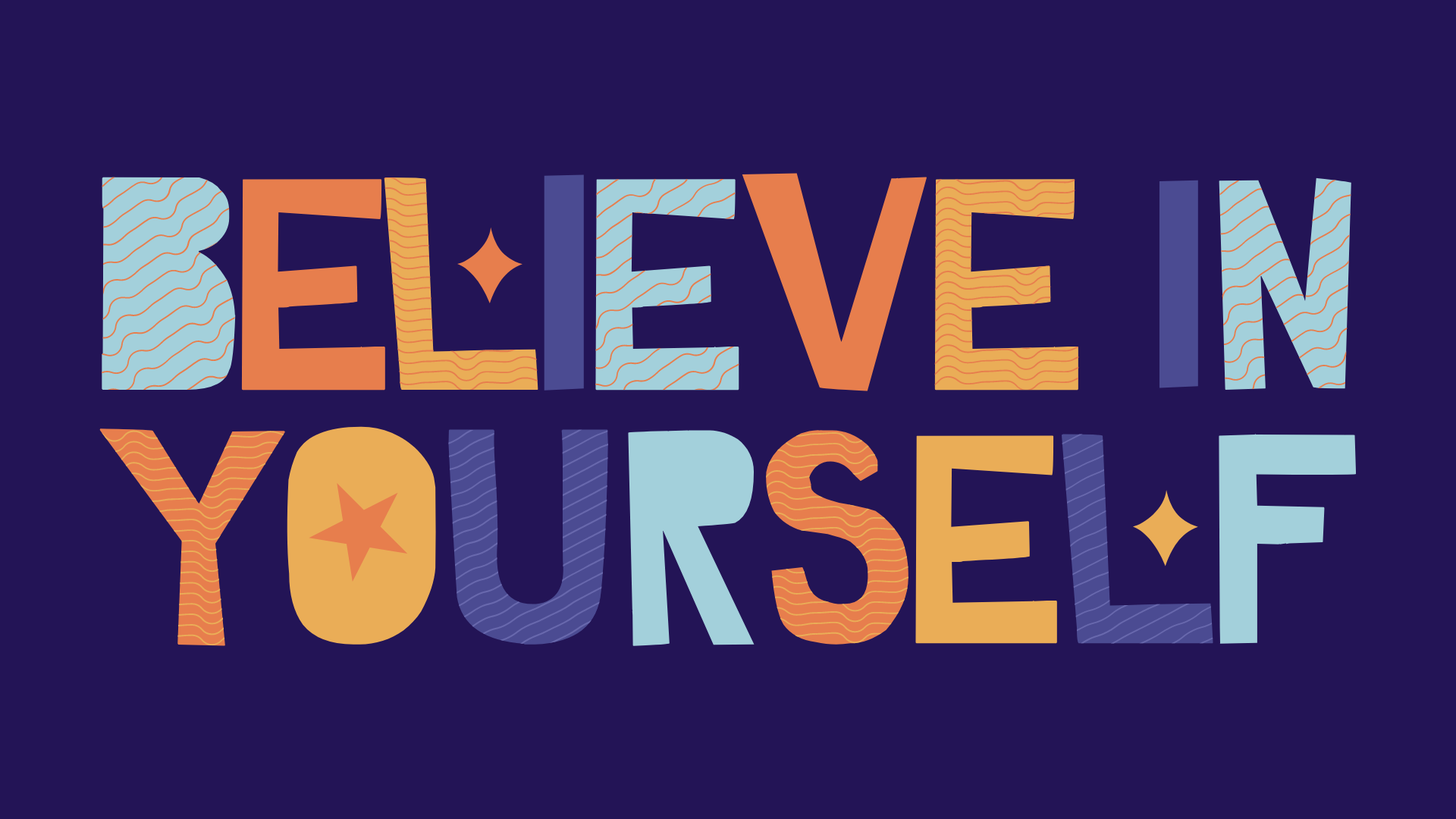
We reach success in education if all people know exactly how to live up to their potential. This requires not only formal knowledge and learning, it includes a deep understanding of self through introspection. The secret sauce of a successful education includes information, sometimes encyclopaedic knowledge as well as an awareness of our own desires, experiences, passions and aspirations. Successful education happens when a beautifully open mind meets critical thinking; and when connecting the dots leads to problem solving and openness to the wonders of the world. I am not talking about a romantic setting: give everyone a book and they can study by themselves and all will be good. Successful education goes beyond school and formal education. It comes from people who challenge us or make us do things we don’t want to, from different situations, personal struggles or an inspiring influence. These are opportunities to thrive and suddenly we realize we went beyond what we think we can do and we outgrow our own expectations - thanks to other people. We meet excellent teachers in our family, within our group of friends, at our internet community or at school or university and we learn from and with them and they inspire us - these people have an impact on us. I call this ‘people-associated learning’ and consider it the most profound and life-changing education method. What is the opposite of successful education? If we stop learning, if we don’t accept that the only constant in life is change. By reaching a point where we say, ‘I know it all’, we have failed. Successful education teaches that we always evolve and this comes with continuous learning and development. This makes us fit for the future and enables us to adapt to always new circumstances. It is about being able to divorce a previous idea and embrace a new one, it is the ability to change. We constantly receive input from our educators and rely on them. A worthwhile goal in successful education is to reach a degree of independence and freedom to educate ourselves with the aim to share our knowledge with other people. This is a wonderful path, however, not an easy journey. If someone is believing in us, it is much easier to go the way we want to go - despite obstacles. With the help of others, we will have the courage to overcome all the speed bumps and setbacks and we will have the guts to educate ourselves. Nothing is better, makes us happier and contributes better to the world than fulfilling what our purpose is. This belief in us is by someone who is around us & makes all the difference: they can challenge us, they see achievements in us which we yet to cannot see, and they see of how much more we are capable of. Go and find the people in your life, who tell you this one lifechanging sentence: I believe in you. BIOGRAPHY Vanessa Herder is a scientist working at The University of Glasgow in Scotland. Her work studies the early immune response of virus infections aiming to understand what drives a severe and lethal outcome versus a mild disease. She did her PhD in multiple sclerosis research, followed by a doctoral thesis about a virus infection causing brain malformations. She is a trained veterinarian and after finishing her specialisation in veterinary pathology in Germany, she moved to Glasgow to focus on the pathogenesis of systemic and respiratory virus infections, including SARS CoV-2 and influenza virus.

